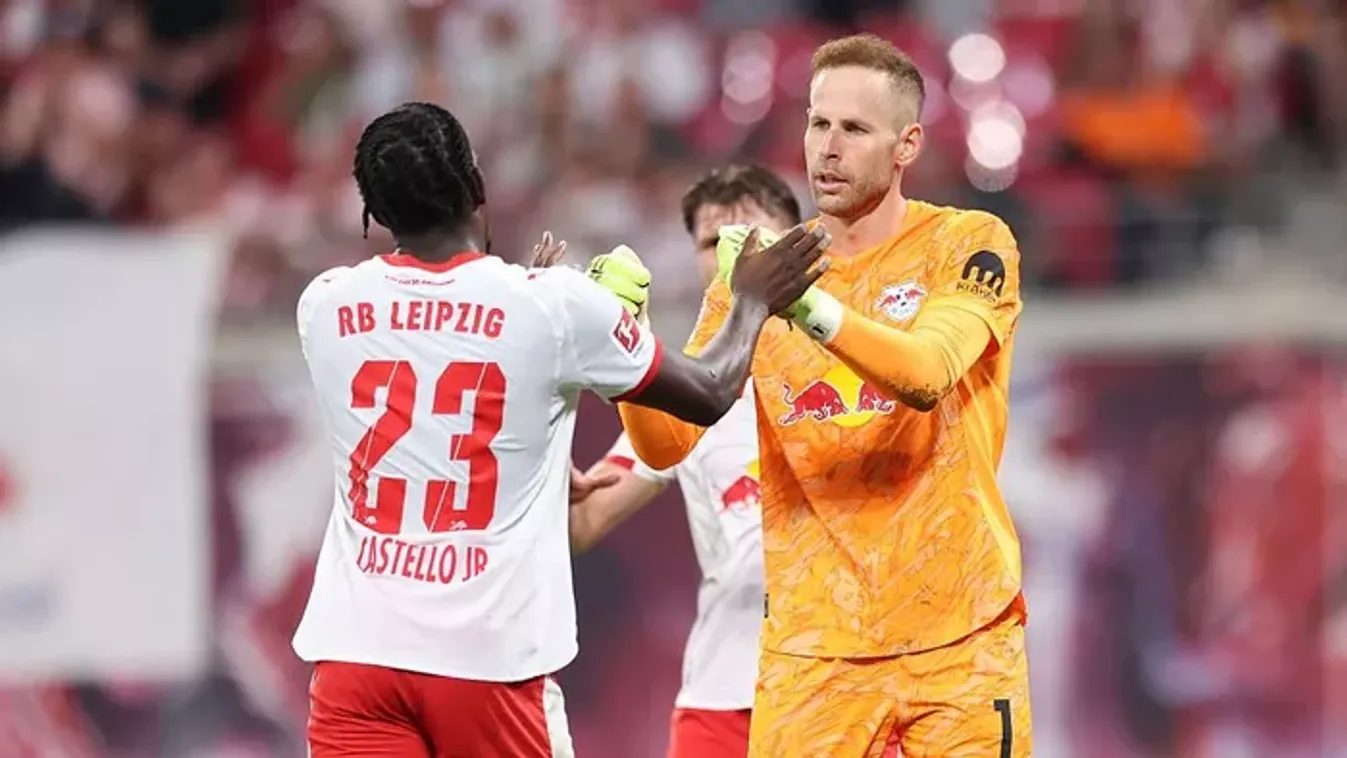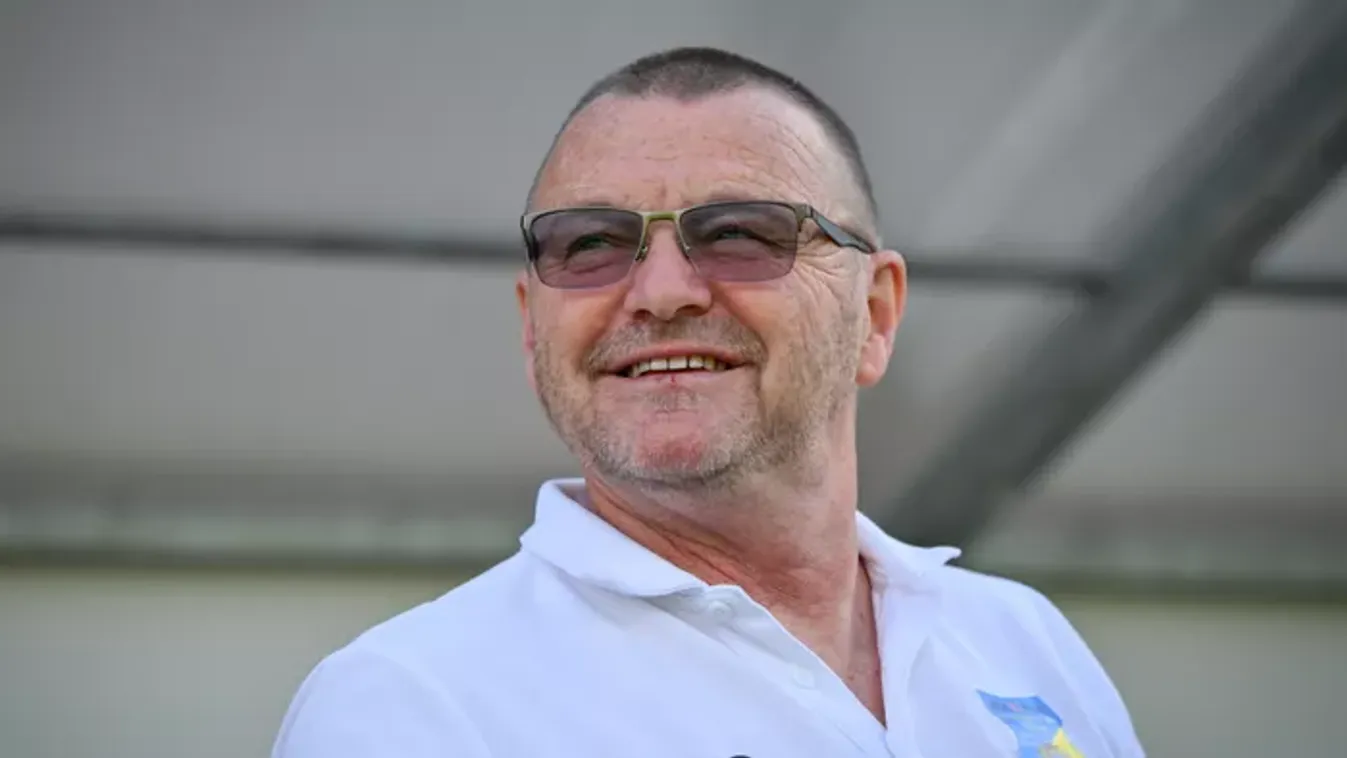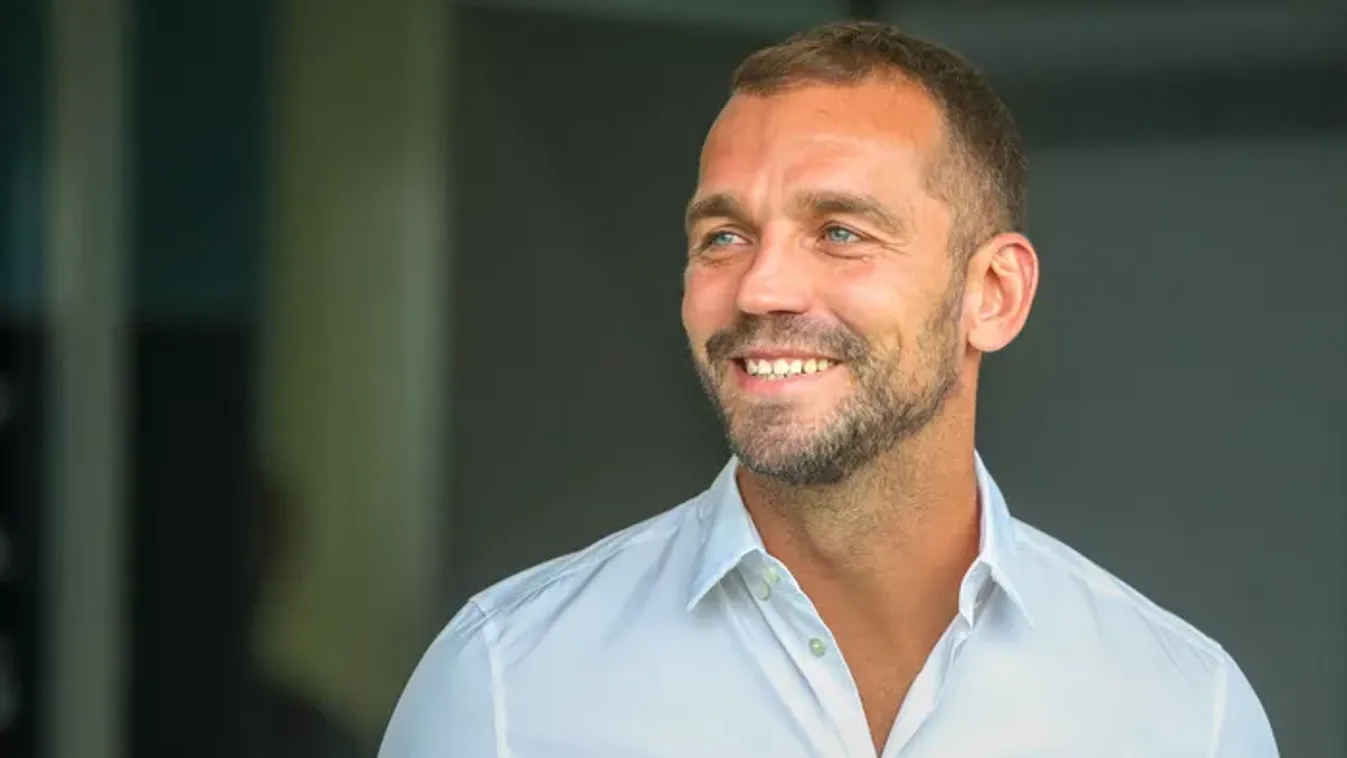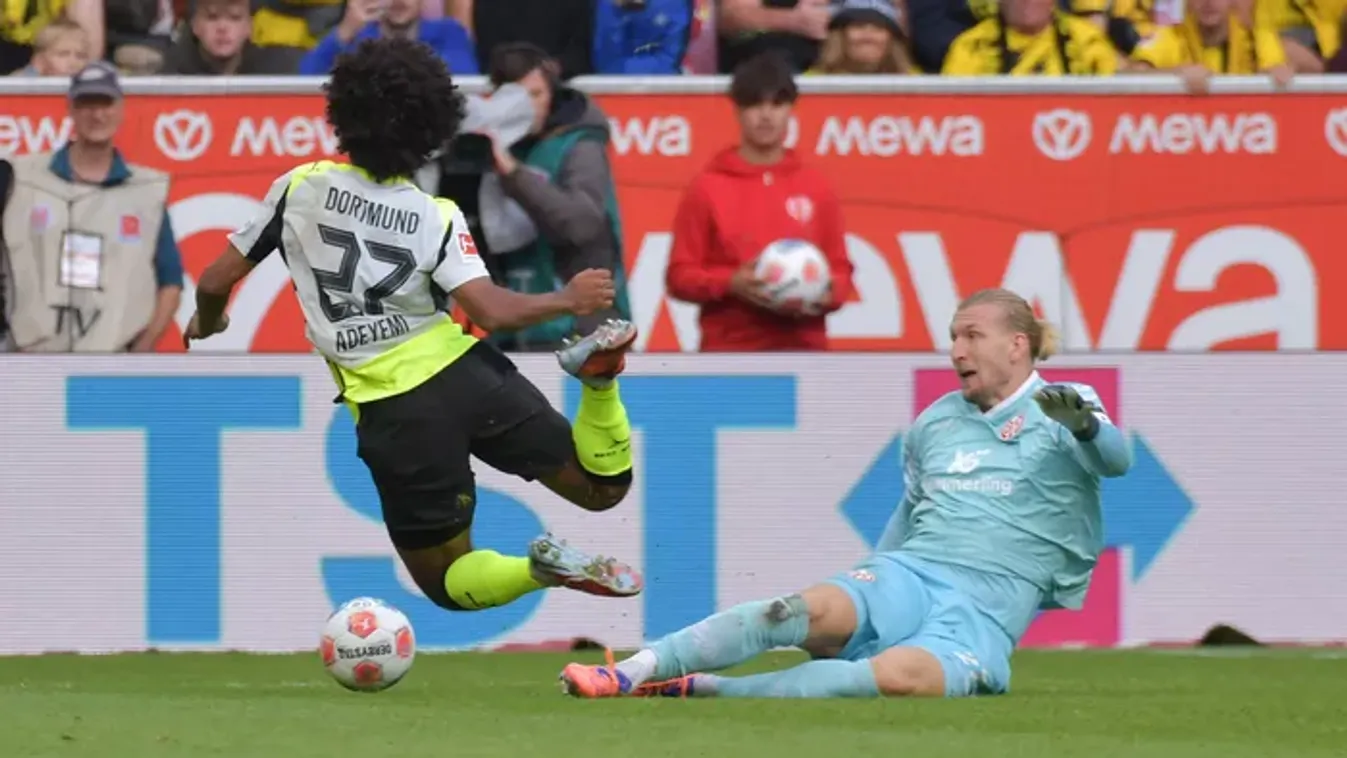Hungarians with armband: Gulácsi, Kubala, Dárdai, Juhász, Dzsudzsák
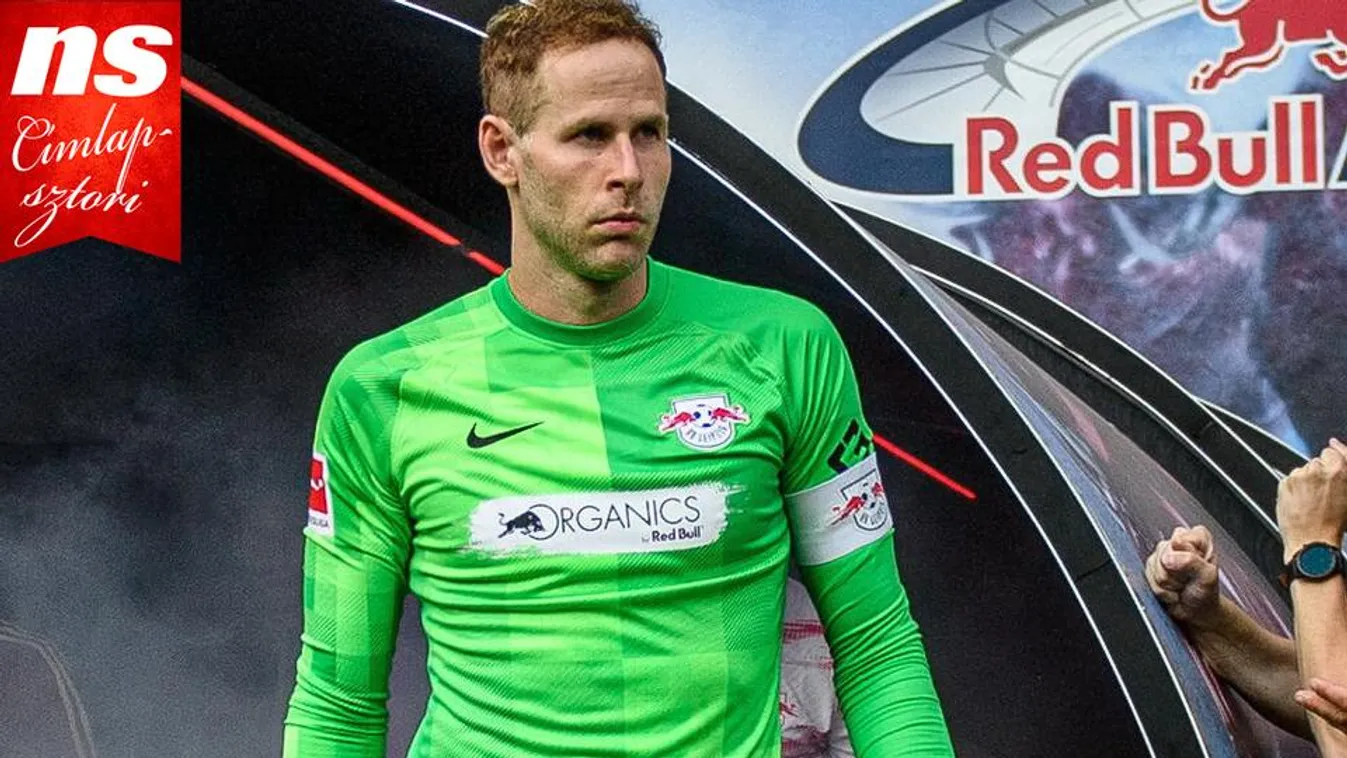
You can read the Story in English here!
It is known that it was a great honor for RB Leipzig's Hungarian national team goalkeeper Péter Gulácsi to be appointed team captain by head coach Jesse Marsch.
"He is fully respected within the team; he leads the way for the others, and is a spokesman for the team," Marsch, quoted by MTI at the time, said of the new captain. Péter Gulácsi accepted the appointment with these words: "It is an honor and a great responsibility for me, but in recent years, I have had to be the leader of the team, and I have been acting as vice-captain until now. Now I'm going to be the number one choice - but it doesn't change my role and my duties much.”
Although the goalkeeper's words suggest that this invitation is the result of a process that can be called natural, it is quite rare for a Hungarian footballer to earn this recognition in a foreign club team, especially in a top league team. Nevertheless, there are precursors to Péter Gulácsi...
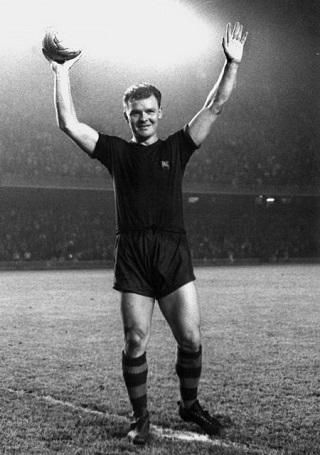
KUBALA WAS A BARCELONA AND SPANISH TEAM CAPTAIN AS WELL
Before World War II, we are aware of only one Hungarian footballer who gained such recognition abroad: world traveler Béla Guttmann was captain of the Austrian Jewish team, Hakoah Wien, during his first playing career abroad. There, he was deprived of the post in October 1925 after a noisy disagreement with a teammate, but he was either captain of the teams at all his later clubs, or a leader partly working as a manager and assistant coach long before he began his coaching career.
After the war, there were far fewer opportunities to earn such an honor, since only those who “defected” could play beyond the Iron Curtain. As far as we know, between 1949 and the beginning of the 1980s, László Kubala, who left the country in 1949 and became a player for Barcelona in 1951, was the only one who was a team captain in a Western team. This happened in the fall of 1955 when Ferenc Plattkó became Barcelona's coach and gave his compatriot the – we almost wrote armbands, but it did not exist yet... – assignment. Kubala was the captain until the end of the year, but on the night before the Inter-Cities Fairs Cup match against Copenhagen on December 25, 1955 (6-2 for Barcelona), so on Christmas Eve, he went out for a drink with five of his teammates, and Plattkó, therefore, deprived him of the title. He was the team captain of the Spanish national team in his farewell match on April 2, 1961 (2–0 against France).
The captain's armband only appeared in football at the end of the 1960s. We first saw it at the 1968 European Championship, where Italian Giacinto Facchetti took the trophy with the armband on his arm. But, for example, in the 1970 World Cup final, Carlos Alberto of Brazil still did not wear it; it was not missing in later tournaments. The word “captain's armband” was first described in Nemzeti Sport in 1971, when the report of the Csepel-Skoda Plzen Mitropa Cup match read: "(The referee – the ed.) asked (István – the ed.) Vellai to put on the captain's armband. The right-back replied that ‘This is not customary for us' (Really, why not?)" It only began to spread in Western leagues in the early 1970s. For example, it was introduced in La League in 1974.
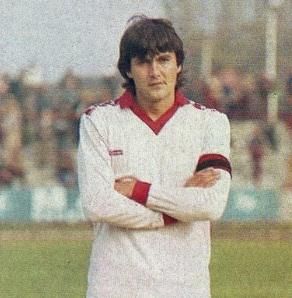
ANTAL NAGY WORE THE ARMBAND IN TWO COUNTRIES
Hungarian footballers were able to play for foreign teams under certain conditions after 1979, so the first Hungarian player to actually wear the captain's armband abroad was Sándor Zombori in Montpellier, France. According to a photo of a magazine (special issue of Onze – 1984), he wore the armband in the 1984–1985 season, even though he was only in his third season at the club.
In the years that followed, Antal Nagy, capped 32 times for Hungary, could be the captain in France for Nancy and Switzerland for Yverdon.
"I think it's primarily a matter of personality," Antal Nagy told our portal. "Even in Honvéd, if a mate had housing problems, I immediately went to the leaders of Kispest: ‘Gentlemen, action! Of course, Anti, we'll look into it, and after a while, the players will trust you, they'll come to you. Another aspect of this is that you let your voice out on the pitch and lead the way.' When I got to Nancy, I first invited everyone for a glass of champagne, a little lunch, and they just looked at me like ‘Who's this, it's not our custom. It is ours, and that's how we get into the restaurant, and the guys patted me on the back: you might be right, that's how you introduce yourself. Then on the field, you die to win, you bite through the opponent's throat, and if you're that type, you're going to be in the center of attention.' Arsène Wenger was our coach, and he said there was no problem with the captain of the team, but Antal is even more suitable for this position."
When he signed for Switzerland, legend has it that Yverdon's older players said they had good players at the club, but with him, a Ferrari arrived in the dressing room.
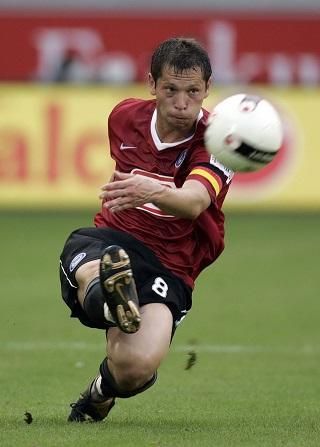
"You don't enter a dressing room and say, ‘Hello, I'm the captain,'" said Antal Nagy. – You get the armband after your personality, behavior, and the way you talk. I was Yverdon's captain for five years. Even today, the guys say it with laughter that I didn't speak the language yet, but I couldn't shut my mouth. In my 36th year, we got promoted, but everything hurt, I was on medication, so I came home. The president called me in asking if I wanted more money. I said it would be nice, the topflight, the success would be great as well, but I knew it was going to be a lot, and I couldn't keep the pace - he couldn't accept it. Years later, our team of that time got together, we went to the Yverdon league game, and the president asked how many of us there were. Twenty. Then they put down nineteen VIP tickets and told me to buy one for myself because I let him down. The old mates laughed because it would be nice if I had to buy the ticket to where I was the team captain for five years. The president also relented, later declaring that Antal "Názsi" was the best player in the club's history."
In recent decades, we have seen Hungarian players with the captain's armband of a foreign club on their arms, such as Pál Dardai (Hertha BSC), Roland Juhász (Anderlecht), Miriuță Vasile (Cottbus), Vladimir Koman (Sampdoria, in the 2010 Europa League group match against DVSC), Dániel Tőzsér (Genk) or Willi Orbán (RB Leipzig). The emblematic team of Hungarians in Slovakia, DAC, also has a Hungarian team captain in the person of Zsolt Kalmár, who is recovering from his injury.
BALÁZS DZSUDZSÁK: HATTRICK
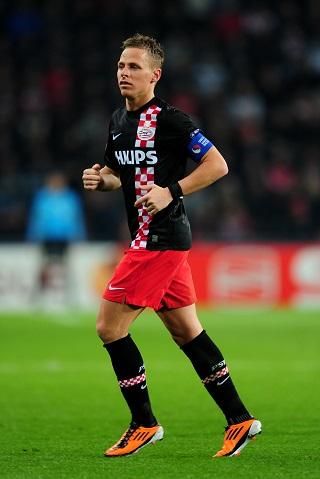
Balázs Dzsudzsák, who in addition to DVSC and the Hungarian national team, could be captain of three foreign clubs!
"I remember the first time well," said the 108-time Hungarian national team player at Loki. – In the spring of 2011, PSV welcomed Benfica in the top eight of the Europa League. Luisao from Brazil handed over the Portuguese flag and after the match, I was told that since I was captain for the first time, I can get the flag, which I still hold dearly. It was customary that based on age and time spent at the club, there was a hierarchy. Although I came to Eindhoven at a young age, after a few transfer periods I moved up the rankings, and in a few years, I was considered a senior. So, I was second or third in the rankings, and if anyone who was in front of me couldn't be on the pitch because of an injury or a disqualification, I was the captain of the team. What did I need for this? In addition to the performance on the pitch, I had to be accepted in the dressing room as well. I've been captain on ten PSV matches, and I'm proud of that.
The footballer was also a captain in the Arab world, playing for al-Vahda and al-Ittihad Kalba.
"There are two different cases," said Balázs Dzsudzsák. "My teammate at Vahda was club-raised Ismail Matar, the great personality of Arab football, so, of course, he had the armband. If he was absent, I wore it. I signed with Kalba on a Thursday, played league on Friday the next day, had a break on the weekend, and on Monday in the dressing room, the teammates said they wanted me to be the captain of the team. It meant so much that after a few days and one game I would be entrusted with this honor."


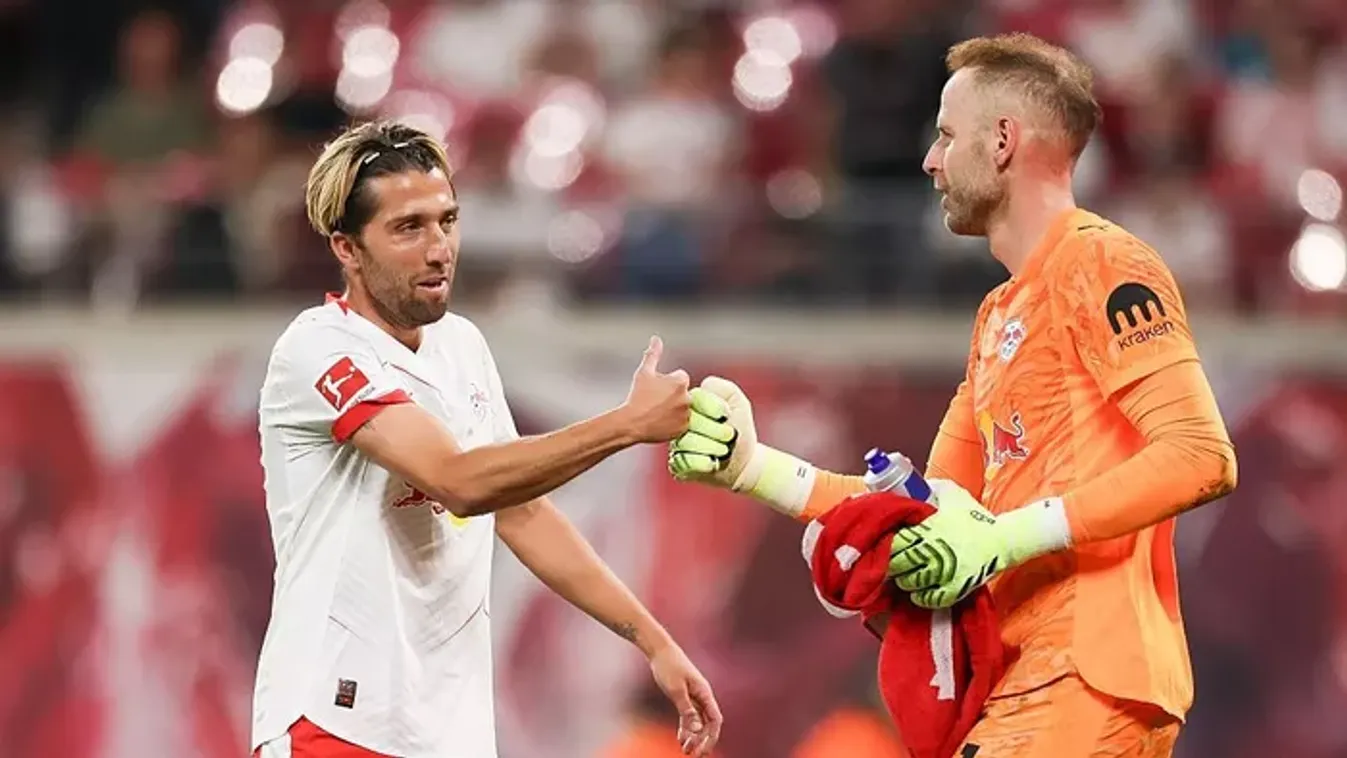
Gulácsi jövője ismét téma a német sajtóban
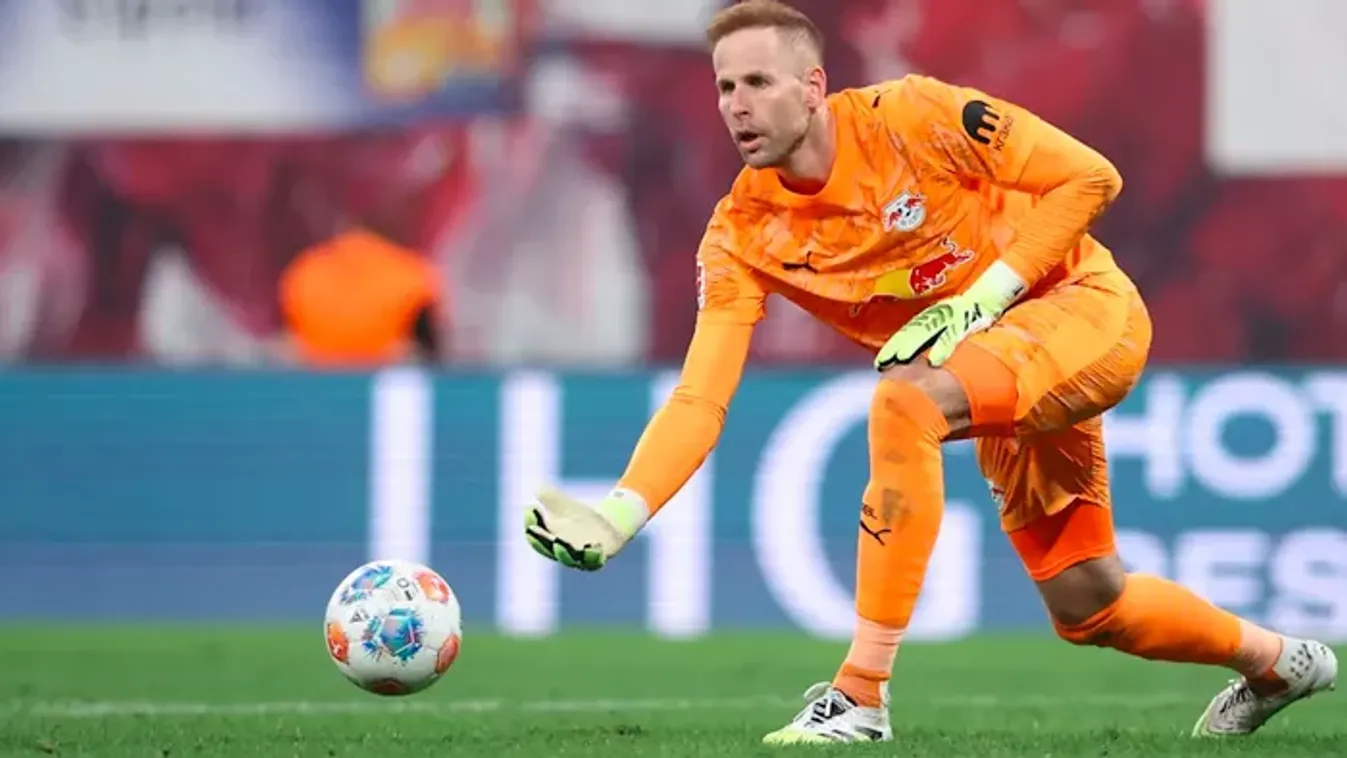
Gulácsi Péter: Egyértelmű volt, hogy maradni akarok
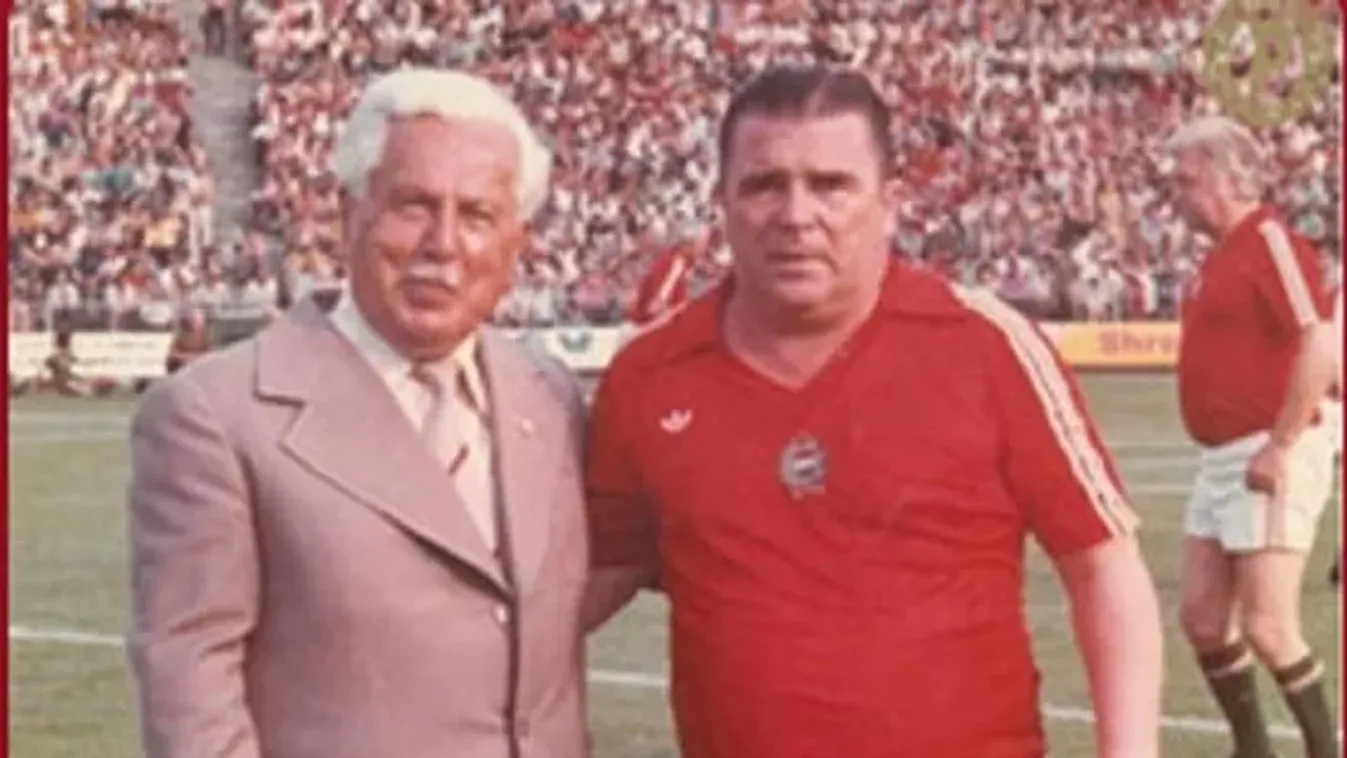
Eltitkolt futballsztárjaink a vasfüggönyön túl
